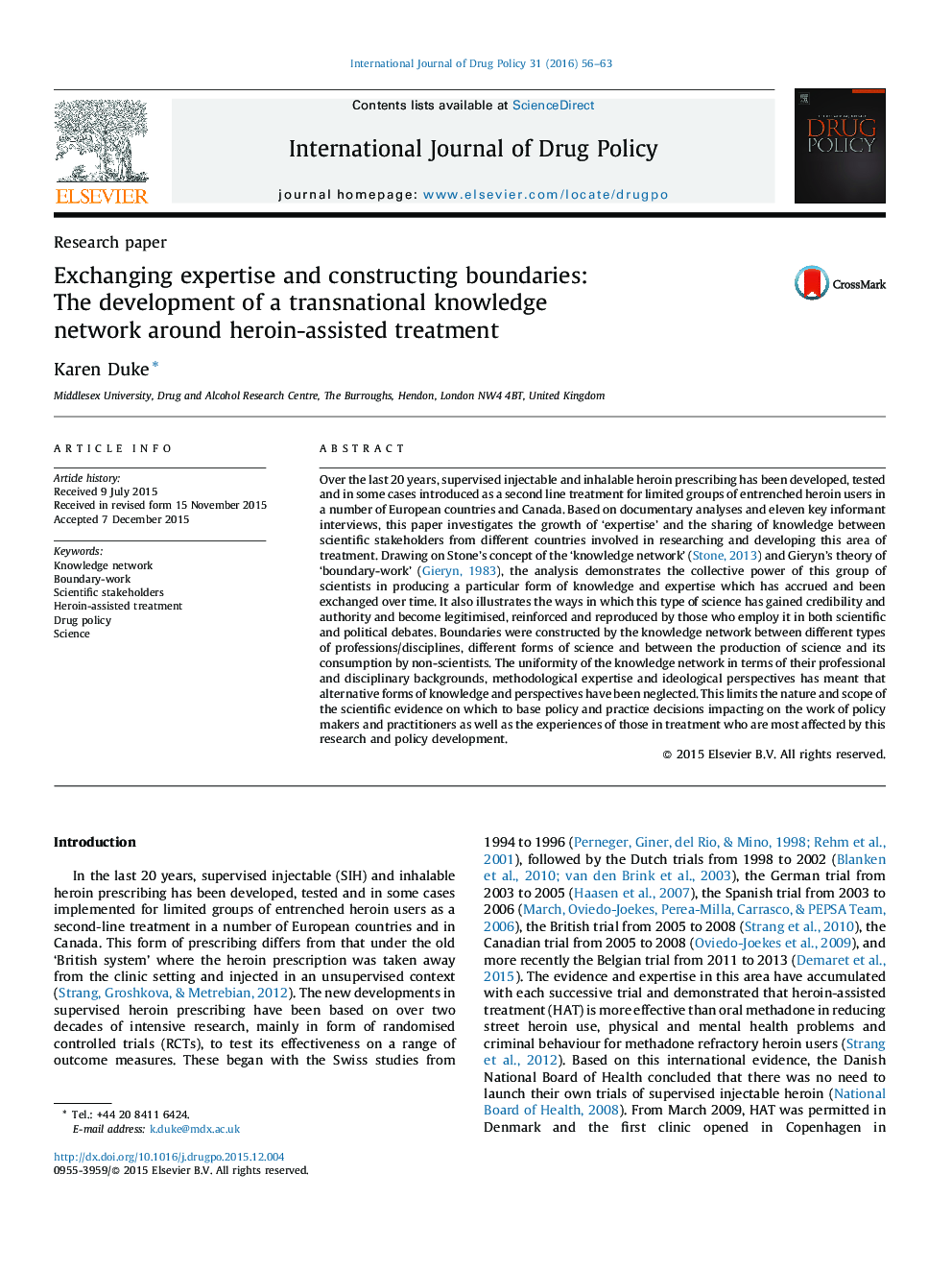| Article ID | Journal | Published Year | Pages | File Type |
|---|---|---|---|---|
| 1074941 | International Journal of Drug Policy | 2016 | 8 Pages |
Over the last 20 years, supervised injectable and inhalable heroin prescribing has been developed, tested and in some cases introduced as a second line treatment for limited groups of entrenched heroin users in a number of European countries and Canada. Based on documentary analyses and eleven key informant interviews, this paper investigates the growth of ‘expertise’ and the sharing of knowledge between scientific stakeholders from different countries involved in researching and developing this area of treatment. Drawing on Stone's concept of the ‘knowledge network’ (Stone, 2013) and Gieryn's theory of ‘boundary-work’ (Gieryn, 1983), the analysis demonstrates the collective power of this group of scientists in producing a particular form of knowledge and expertise which has accrued and been exchanged over time. It also illustrates the ways in which this type of science has gained credibility and authority and become legitimised, reinforced and reproduced by those who employ it in both scientific and political debates. Boundaries were constructed by the knowledge network between different types of professions/disciplines, different forms of science and between the production of science and its consumption by non-scientists. The uniformity of the knowledge network in terms of their professional and disciplinary backgrounds, methodological expertise and ideological perspectives has meant that alternative forms of knowledge and perspectives have been neglected. This limits the nature and scope of the scientific evidence on which to base policy and practice decisions impacting on the work of policy makers and practitioners as well as the experiences of those in treatment who are most affected by this research and policy development.
